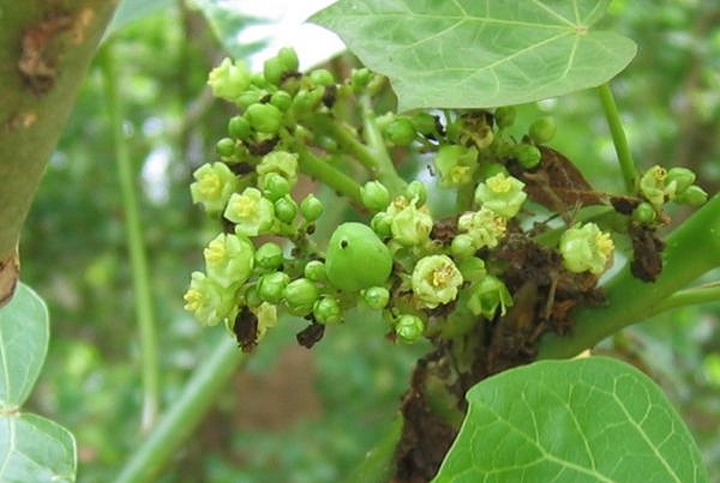
| Tuesday, September 04, 2012 | Archives | Advertise | Online Buyer's Guide | FLEETSolutions |
How A Biofuel Dream Called Jatropha Came Crashing Down
 A few years ago, some people thought they'd found a biofuel that didn't take food out of people's mouths: a miracle tree called Jatropha. Unfortunately, the miracle turned out to be a mirage. A few years ago, some people thought they'd found a biofuel that didn't take food out of people's mouths: a miracle tree called Jatropha. Unfortunately, the miracle turned out to be a mirage. Ywe Jan Franken, an expert on biofuels for the FACT Foundation, a research group in the Netherlands, says this plant grows all over the tropics, including Indonesia, the Philippines, Cambodia, India, and Latin America. (It originated in Central America, and Europeans spread it to their various colonies several centuries ago.) It's an extremely hardy plant, and grows in places where most plants would die. "If you grow it on sandy soil, with not too many nutrients, and with dry periods, the plant miraculously survives," says Franken. This is what really caught people's attention about a decade ago. At that time, oil prices were soaring. People were getting increasingly worried about global warming. And some governments came to the conclusion that part of the answer could be biofuels, such as corn or palm oil. These biological fuel factories take carbon dioxide out of the air as they grow, which reduces the planet's burden of greenhouse gases. As soon as they started to scale up biofuel production, however, they ran into the food vs. fuel problem. More fertile land for biofuels means less food or forests. At that point, a few experts recalled the virtues of Jatropha. If this bush could thrive on unused, barren land, they thought, the world could enjoy biofuel without the guilt of cutting into food production. Investors loved the idea. Around 2007 and 2008, they threw money at Jatropha projects, including huge plantations covering tens of thousands of acres, all over the tropics. Within just a few years, though, the dream of the perfect biofuel collapsed, partly due to the financial crisis. When it hit, late in 2008, the easy money dried up. Foreign investors pulled out of some projects, leaving them in limbo. But there was a bigger problem. The miracle plant turned out not to be so miraculous, after all. Franken says much of the enthusiasm about Jatropha was based on a misunderstanding. It's true, he says, that the tree can survive droughts and poor soil. But under those conditions, it won't produce many seeds. If you actually want a good harvest of oil, he says, the plant "needs nutrients and water, just like any other crop." This means that Jatropha fields will compete for the same fertile land as food crops. Welcome back, food vs. fuel. Many of the companies that jumped into the Jatropha business have now climbed back out again; others are cutting back their operations. Franken says the collapse of the Jatropha boom is disappointing for everyone, but it's most disappointing for the small farmers who bought into the dream. Some of the projects, he says, "promised the farmers high returns, as has been done so many times with new ideas, or crops. And in this case they thought, 'Wow, we can make some money here, because there is such high demand for biofuels.' And they actually lost money, because they could have done something else." |
 |
NAFA Fleet Management Association 125 Village Blvd., Suite 200 Princeton, NJ 08540 Telephone: 609.720.0882 Fax: 609.452.8004 |








